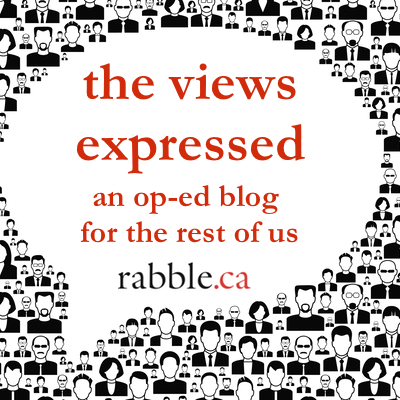There’s a federal election just over the horizon. Soon we will come together as a nation to talk about where we want our country to go. We will share ideas and debate policy, and we will learn about one another and the challenges we face in this huge and diverse place.
Or, something else will happen.
What we will probably do is shout at one another. Because Canada’s political discourse has descended to the level of ‘online comments section.’ Mostly hyperbole with a smattering of ‘does it have to be this way?!’
Where there should be ideas there are attacks. Where there should be debate we kick at one another’s legs and yell talking points into the air.
You voted Conservative once? Your opinions don’t count.
You provided advice to the Liberal Party? You don’t count either.
You work at a newspaper? You write for a blog? You visited the tar sands? Shill. Hack. Liar.
There is never any need to discuss or explain, because anyone we disagree with is wrong by default. You could call it the Rob Ford Doctrine, but he is hardly the only practitioner.
This came into relief when a friend of other friends wrote an Op-Ed for the London Free Press, and was shouted down because he had worked with some of the political parties he was writing about. People weren’t upset because his ideas were wrong or poorly thought out, they were upset because of his employment history.
Bias matters and bias should be revealed. But bias shouldn’t invalidate an idea.
It wasn’t new to see this reaction. Cutting people down is the modus operandi of the Internet. But the proximity of the author to myself made something otherwise esoteric feel especially poignant.
It is generally sad and hilarious to watch the responses Canada’s columnists and professors and journalists receive for the thoughts and opinions they express for free on Twitter. Partisan rage is the norm, not the exception, and the Internet is where we all go to shout. And if you aren’t on Twitter you can see what I mean in the online comments of your favorite paper. This discourse is not only toxically angry, it is toxically unproductive.
Our national columnists carry on conversation that 35 million of us can’t practically have. And even in disagreeing with them we should be able to profit from their arguments. To better understand someone else’s position, or to better understand our own when we are forced to defend it.
But what should be a conversation has become a contest for partisan points.
Journalists one day derided as hacks are lauded a day later when their news aligns more comfortably with party lines. Shouted down and then retweeted, all as a normal part of the news cycle.
There are pundits and politicos and washed up former staffers who’ve built their personal brand on anger and attack. I’m sure they’d claim it’s all in public service, but they’re serving no one but themselves. We can barely get politicians to speak a clear or honest word these days, so sure are they that it will be twisted and mangled and used to attack them.
Conversation is simple. If you think a fact is in dispute, provide evidence of another. If you think an argument is incorrect, form one of your own. Healthy debate can improve policy and educate. But in place of debate we have retreated into truth silos, and everyone who disagrees is trapped outside in permanent defilade.
Political staffers, like my friend of friends, end up in their positions because they care about politics and policy and are driven to be a part of them. And they are by and large intelligent and hardworking people. It is a shame to write off their opinions and ideas just because they cared enough to get involved.
In a country where 40 per cent of eligible voters can’t be bothered to visit a poll, if we invalidate the opinions and ideas of the most engaged citizens for caring too much, then what will we be left with?
I myself was a junior staffer for the Ontario Liberal Government for 11 months. Are my opinions now eternally invalid? I also ran as a candidate for the federal Green Party and supported Jack Layton’s NDP. Is there any topic on which I am not irredeemably biased?
As we get closer to the election partisan sniping will escalate. Columns addressing politics and policy will grow more contentious, and partisans will scream and cry at every perceived slight. And it will be tempting to quiet the noise with argument ad hominem.
But there is a real debate to be had, if we can force our politicians and commentators to truly have it. And if we can force ourselves to address ideas on their own merit, and not stoop to kicking out the legs of the people offering them.
Doug has been politically active since he was the youngest candidate in Canada’s 2000 federal election. He lost badly, and then spent most of his 20s paying tuition to study politics. He worked for a while as a Liberal staffer in Ontario, but now he drives a van for a catering company and suspects that sitting in Toronto’s endless traffic might be the purest experience of political policy making. He tweets hopes, fears, and pictures of himself @dphowat.




